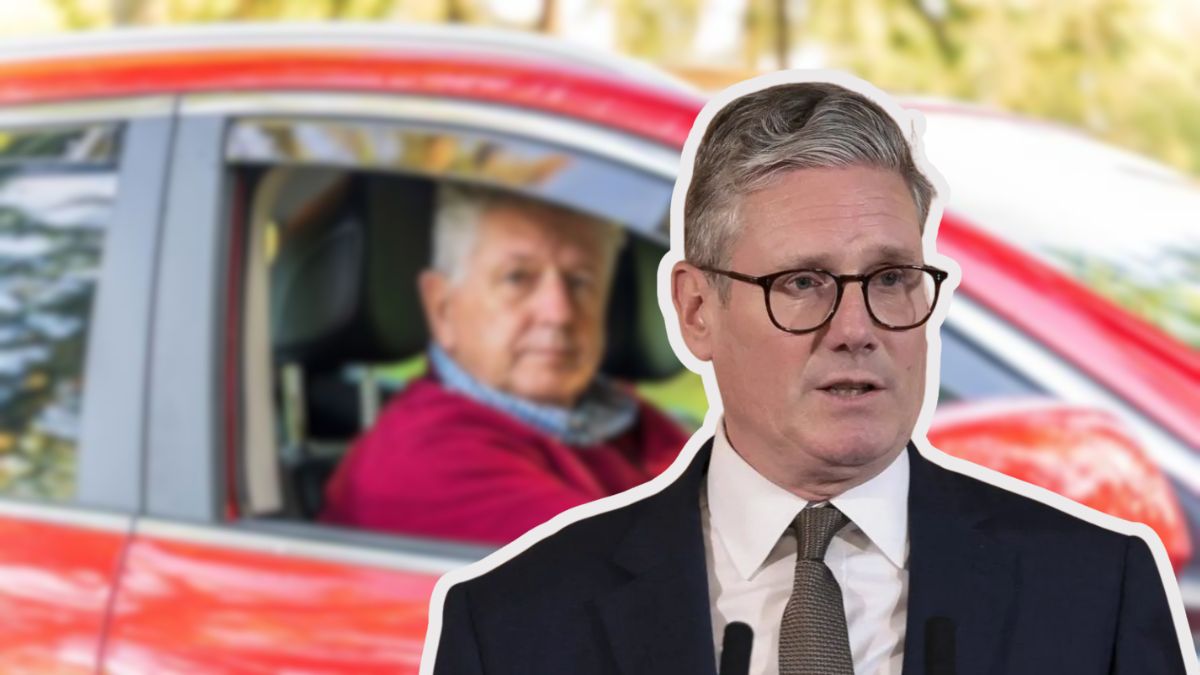From September 2025, the DVLA rule changes for drivers over 62 will come into effect, bringing new requirements that directly impact millions of senior motorists across the UK. For years, drivers were largely unaffected by additional checks until they reached 70. Now, for those aged 62 and above, the DVLA is introducing stricter medical declarations, mandatory eyesight proof, and in some cases, a shorter licence renewal cycle.
The government insists these reforms are not about limiting independence but about improving road safety while supporting older drivers to remain confident and mobile for longer.
Why the DVLA Is Changing the Rules
The reforms are built on three key concerns:
- Road safety – Data shows that age-related conditions such as reduced vision, slower reaction times, and chronic illnesses can influence driving ability.
- Early detection – Catching medical or vision issues sooner allows drivers to receive treatment and continue driving safely.
- Sustainability – With an ageing population and more senior drivers on UK roads than ever before, rules must evolve to reflect reality.
The DVLA has positioned the changes as a preventive step, ensuring drivers stay safe behind the wheel rather than being forced off the road unexpectedly.
Medical Fitness Requirements
One of the most notable aspects of the new rules is the mandatory health self-declaration.
- All drivers over 62 must declare ongoing medical conditions, including diabetes, heart disease, epilepsy, or neurological issues.
- The DVLA may require a doctor’s report for confirmation in certain cases.
- If a condition worsens between renewals, it must still be reported immediately.
The emphasis is on honesty and safety—failure to declare a medical condition could lead to serious penalties.
Vision Standards and Eye Tests
Clear vision is critical for road safety. Under the new rules:
- Proof of a recent eye test will be required at renewal.
- Drivers must demonstrate the ability to read a number plate from 20 metres away.
- If you wear glasses or have undergone surgery (such as cataract removal), additional documentation may be requested.
This ensures drivers can meet minimum safety standards, reducing accidents caused by poor eyesight.
Licence Renewal Period Adjustments
Until now, most drivers did not need to renew their licence until age 70. That changes in 2025:
- If a driver aged 62+ has no significant health conditions, their licence may still last until 70.
- If medical conditions are declared, the DVLA may shorten renewal to every 3 years.
- This gives the DVLA more frequent opportunities to monitor senior drivers’ health and ensure they remain fit to drive.
Insurance Implications for Over-62 Drivers
The reforms will also affect car insurance:
- Some insurers may request medical clearance before offering or renewing coverage.
- Others could provide discounts if drivers complete voluntary driving assessments or refresher courses.
- Premiums may rise for drivers with reported health conditions but could remain stable—or even lower—for those demonstrating safe driving habits.
This creates both challenges and opportunities, making it vital for drivers to compare policies and explore senior-friendly insurers.
Renewal Process – What’s New
The core renewal system remains familiar but with added steps:
- Apply online via the DVLA portal or by post.
- Complete a medical self-declaration form.
- Submit proof of a recent eye test.
- Provide extra medical documentation if requested.
Online renewals remain the quickest, often processed in less than a week, but drivers should plan ahead to avoid any delays.
Driving Assessments for Senior Drivers
While not compulsory for all, driving assessments may be recommended if:
- A driver reports or is diagnosed with certain medical conditions.
- There is a history of repeated accidents or near misses.
Assessments are conducted by certified instructors and evaluate awareness, reaction times, and vehicle control. A positive assessment can help reassure families, strengthen insurance applications, and boost driver confidence.
Everyday Impact on Motorists Aged 62+
At first glance, the changes may appear restrictive. But for many seniors:
- The rules provide reassurance that they are still fit to drive.
- Medical and eyesight checks help identify issues early.
- Confidence behind the wheel often increases after official approval.
The DVLA has stressed that these measures are about supporting independence, not taking it away.
Addressing Common Misconceptions
There are concerns that the DVLA is trying to phase out older drivers. Officials say this is a myth.
- The rules are designed to extend safe driving years.
- Medical checks are not automatic bans; they are tools for early intervention.
- Voluntary driving courses and assessments are about building skills, not removing licences.
Benefits of the New Rules
For drivers and the wider public, the reforms come with several advantages:
- Safer roads due to stricter health and vision monitoring.
- Clear expectations around renewal for seniors.
- Early detection of conditions that may affect driving.
- Potential insurance savings with refresher courses or assessments.
- Legal clarity and peace of mind for drivers and families.
Preparing for the 2025 Transition
If you are approaching 62 or already over this age, preparation is essential. Steps include:
- Booking regular eye tests.
- Keeping updated medical records.
- Familiarising yourself with the DVLA’s digital renewal system.
- Exploring voluntary driving assessments.
- Comparing insurance policies to ensure the best coverage.
By staying proactive, drivers can transition smoothly into the new system and continue to drive confidently and legally.
FAQs
Q1: Do drivers over 62 need to take a new driving test?
No, a new test is not required. But medical and vision checks are mandatory during licence renewal.
Q2: How often will licences need to be renewed after age 62?
If you have health conditions, renewal may be required every 3 years. Otherwise, your licence may still run until 70.
Q3: Are eye tests compulsory for over-62 drivers?
Yes. Proof of a recent eye test is now required when renewing.
Q4: Will insurance costs rise for older drivers under the new rules?
Not necessarily. Some insurers may require medical confirmation, while others may offer discounts for refresher courses or assessments.
Q5: Can drivers with conditions like diabetes or heart disease still drive?
Yes, but these conditions must be declared. The DVLA may request a doctor’s report to confirm fitness to drive.









